Guangzhou (JLC), September 10, 2024 – JLC successfully wrapped up its 12th Singapore Oil Seminar on September 10, with well-received presentations and in-depth discussions on the developments and trends of China’s oil industry.
Co-organized by the Gulf Mercantile Exchange (GME), formerly known as the Dubai Mercantile Exchange (DME), the event threw a spotlight on the changes, challenges and opportunities facing China’s oil markets at a time when headwinds remained in the domestic economy.
The seminar attracted distinguished guests from international oil majors including Saudi Aramco, Sinopec, PetroChina, ExxonMobil, Chevron, Shell, BP, ADNOC and international trading giants such as Trafigura, Glencore and Vitol.
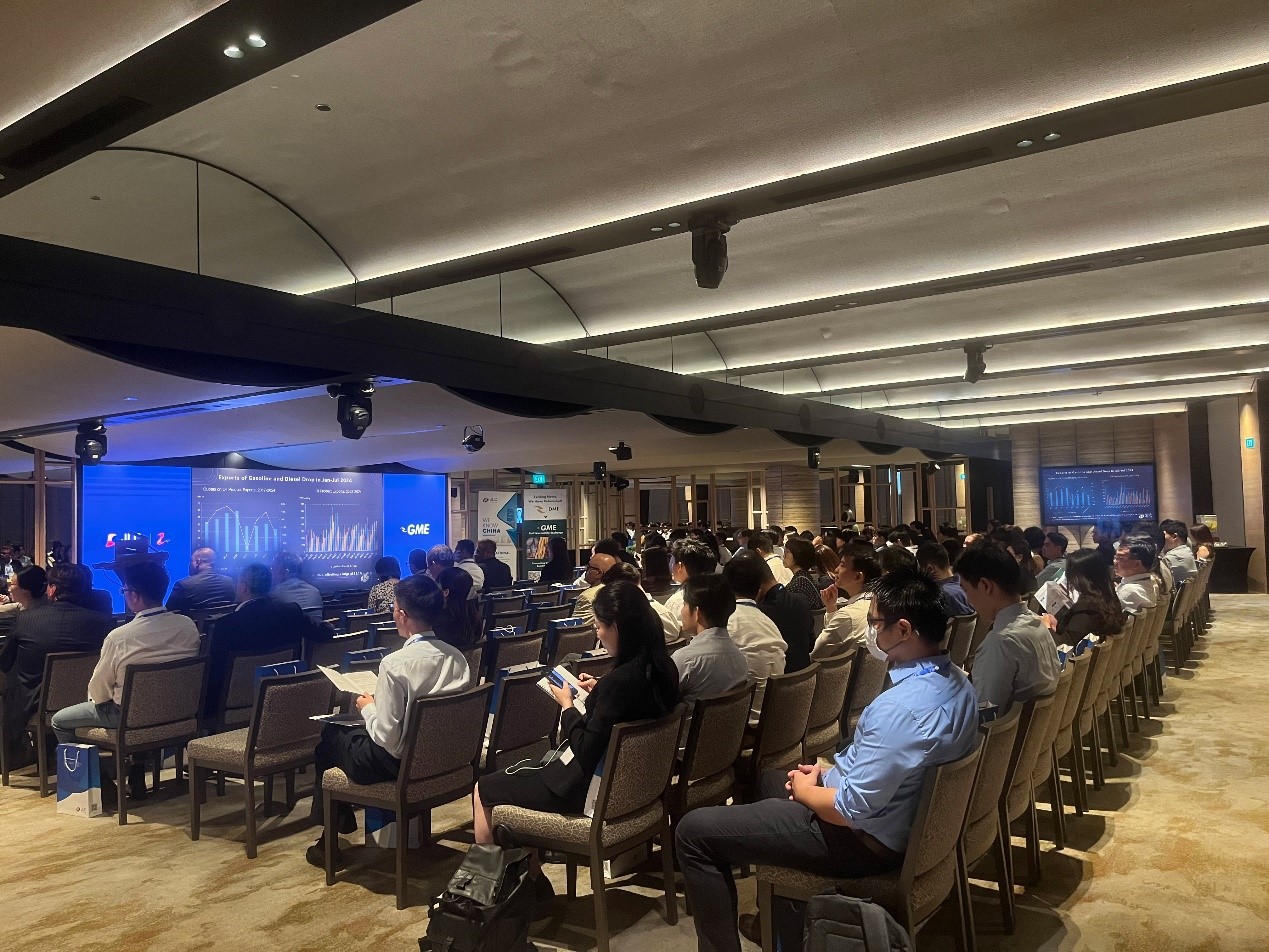
Attendees listen to the presentations attentively
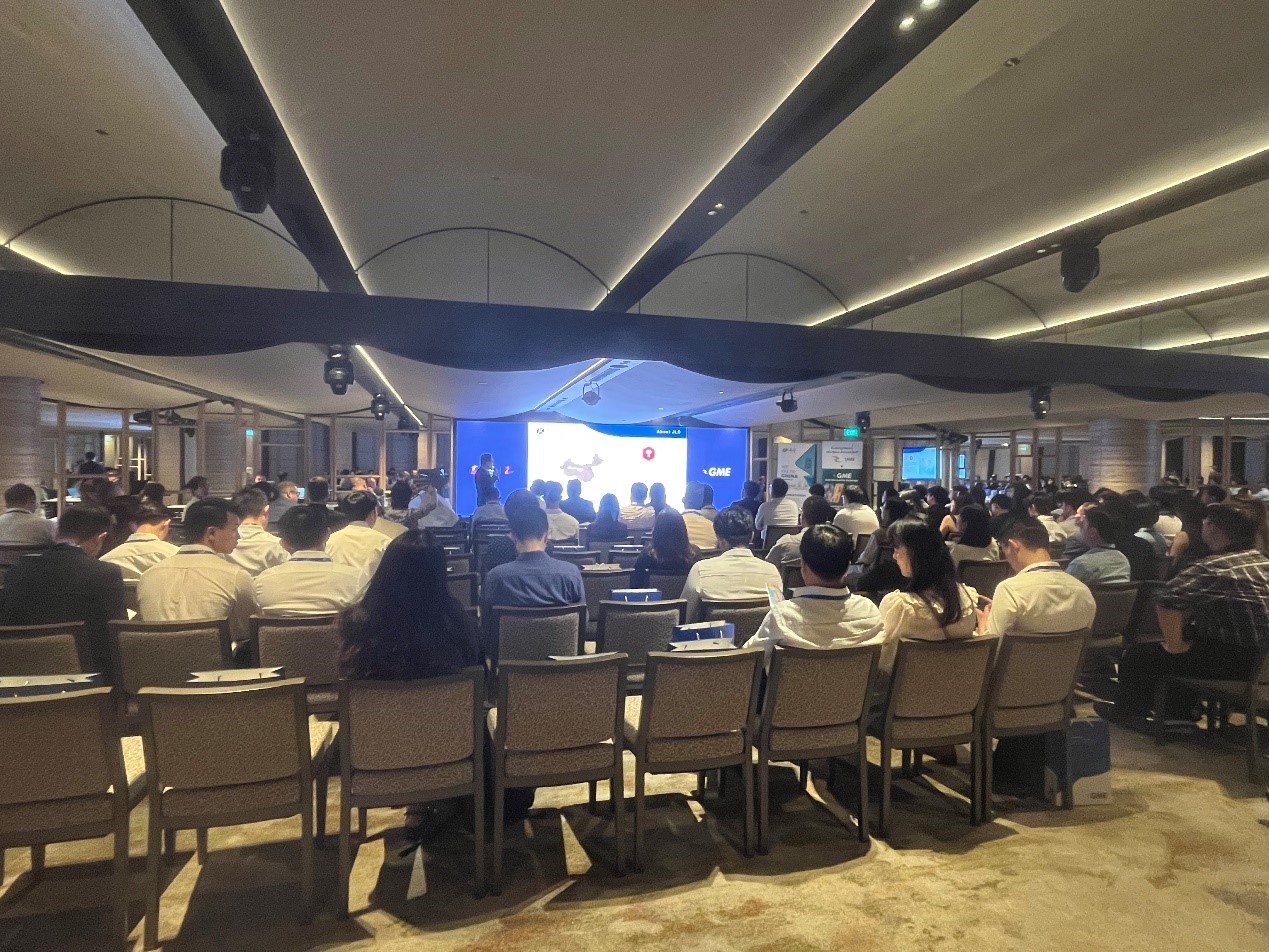
Tony Tang, General Manager of JLC International, kicks off the event
Downward revision of forecasts on crude throughput and imports
Victor Yang, Senior Analyst at JLC International, shared his insights through his presentation titled “A Drop in China’s Crude Demand Vs. Higher GDP in 2024, What do We Expect for Coming Years?”, which delved into the latest trends in China’s crude and oil product demand and prospects.
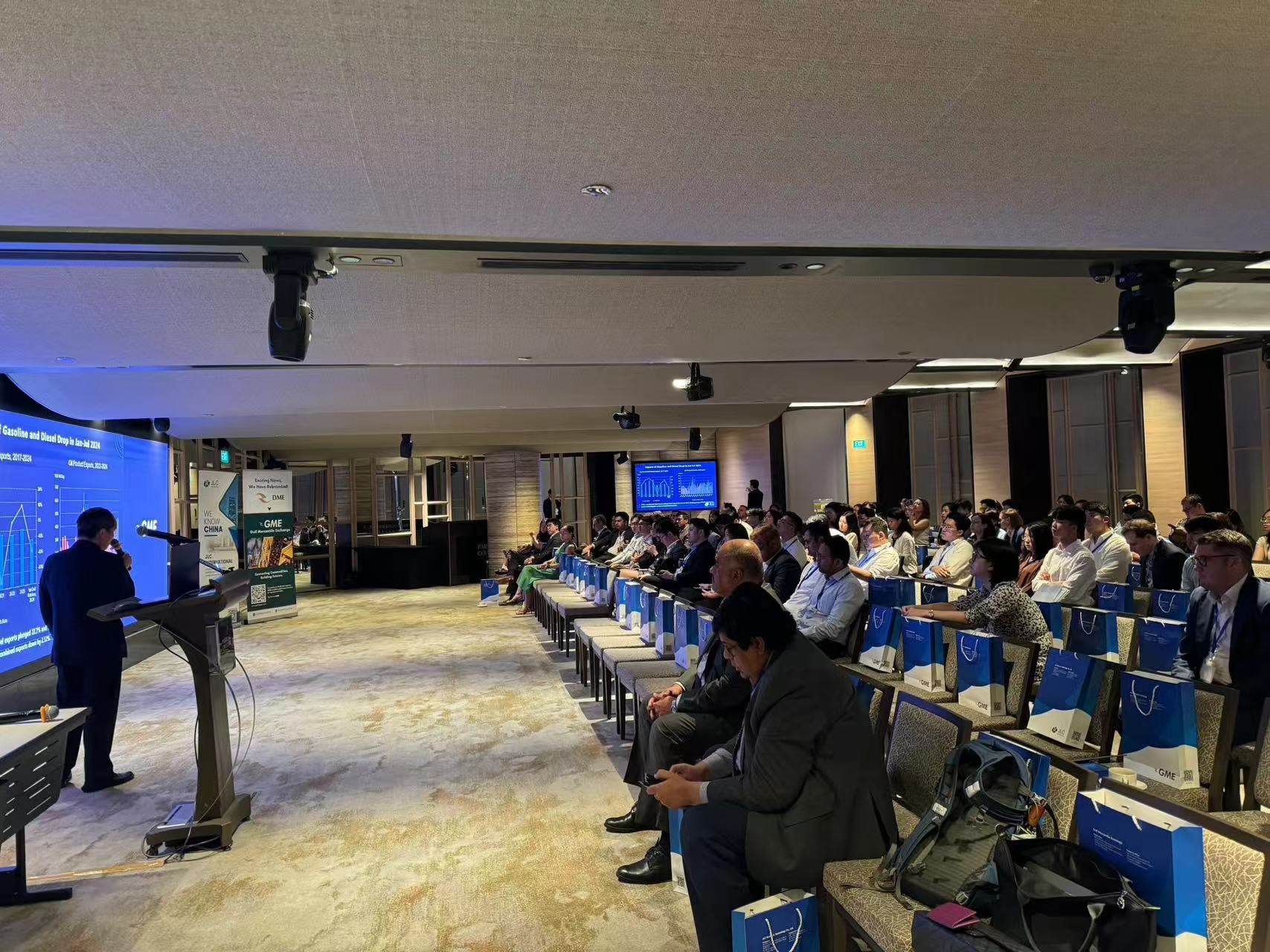
Victor Yang speaks at the seminar
China’s crude throughput is expected to drop roughly 2% year on year to 14.40 million barrels per day (bpd) in 2024, in contrast to a marginal growth predicted previously, Victor Yang said.
Crude imports are expected to shrink 2.74% year on year to 10.97 million bpd in 2024, he added, although refining capacity is still growing slowly.
Diesel demand was relatively weak, with the apparent consumption dropping 3.69% year on year in January-July 2024. Sinopec and PetroChina both reported lower diesel sales in the first half of the year.
However, the downturn could be short-lived as crude throughput and imports are likely to rebound in the coming years, thanks to strong resilience of the economy.
Rosy outlook for naphtha and SAF
Xie Yu, Chief Editor at JLC International, shared her insights into China’s naphtha and biofuel industries.
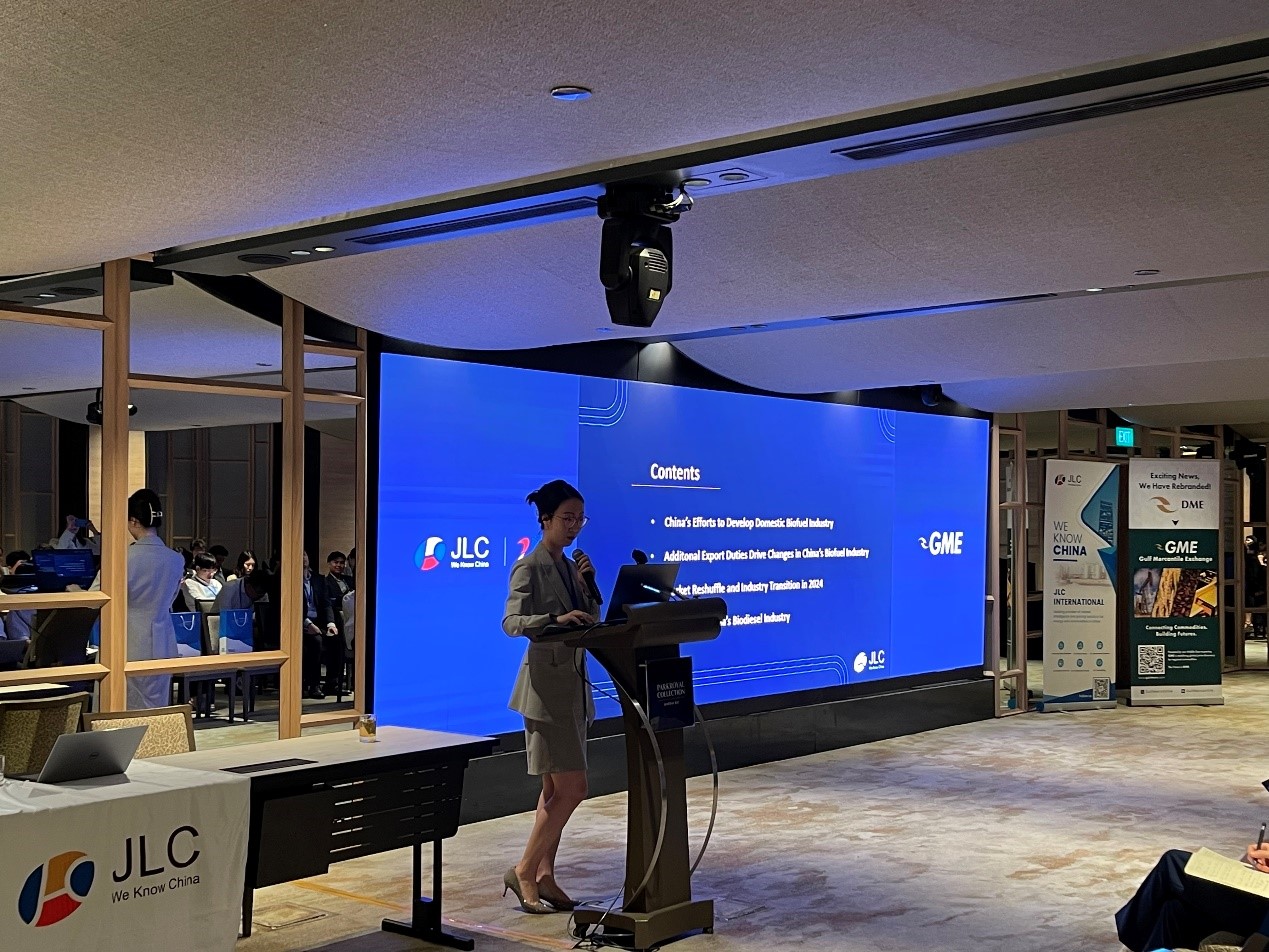
Xie Yu shares her insights
China’s apparent consumption of naphtha is expected to grow 9.6% year on year to about 96 million mt in 2024, she said.
The growth will be led by higher demand from steam crackers and reformers. In 2024, naphtha consumed by steam crackers and reformers is expected to account for 98% of total naphtha consumption in China, Xie Yu added.
Domestic output and imports are both expected to rise on higher demand, she predicted.
Referring to China's biodiesel industry, Xie Yu pointed out that domestic consumption may benefit from the government's biodiesel pilot programs.
While exports of 1st generation of biodiesel and HVO to Europe may no longer be viable due to the additional tariffs, exporters may shift their focus to other destinations such as Southeast Asia or the U.S., she said.
Market attention may also shift to sustainable aviation fuel (SAF), which is likely to experience a demand boom in the coming years. China’s SAF demand could reach 3 million mt in 2030, she predicted.
A new chapter for Gulf Mercantile Exchange
Russell Robertson, Chief Commercial Officer of GME, shared an incredible evolving story of the Gulf Mercantile Exchange, formerly known as the Dubai Mercantile Exchange.
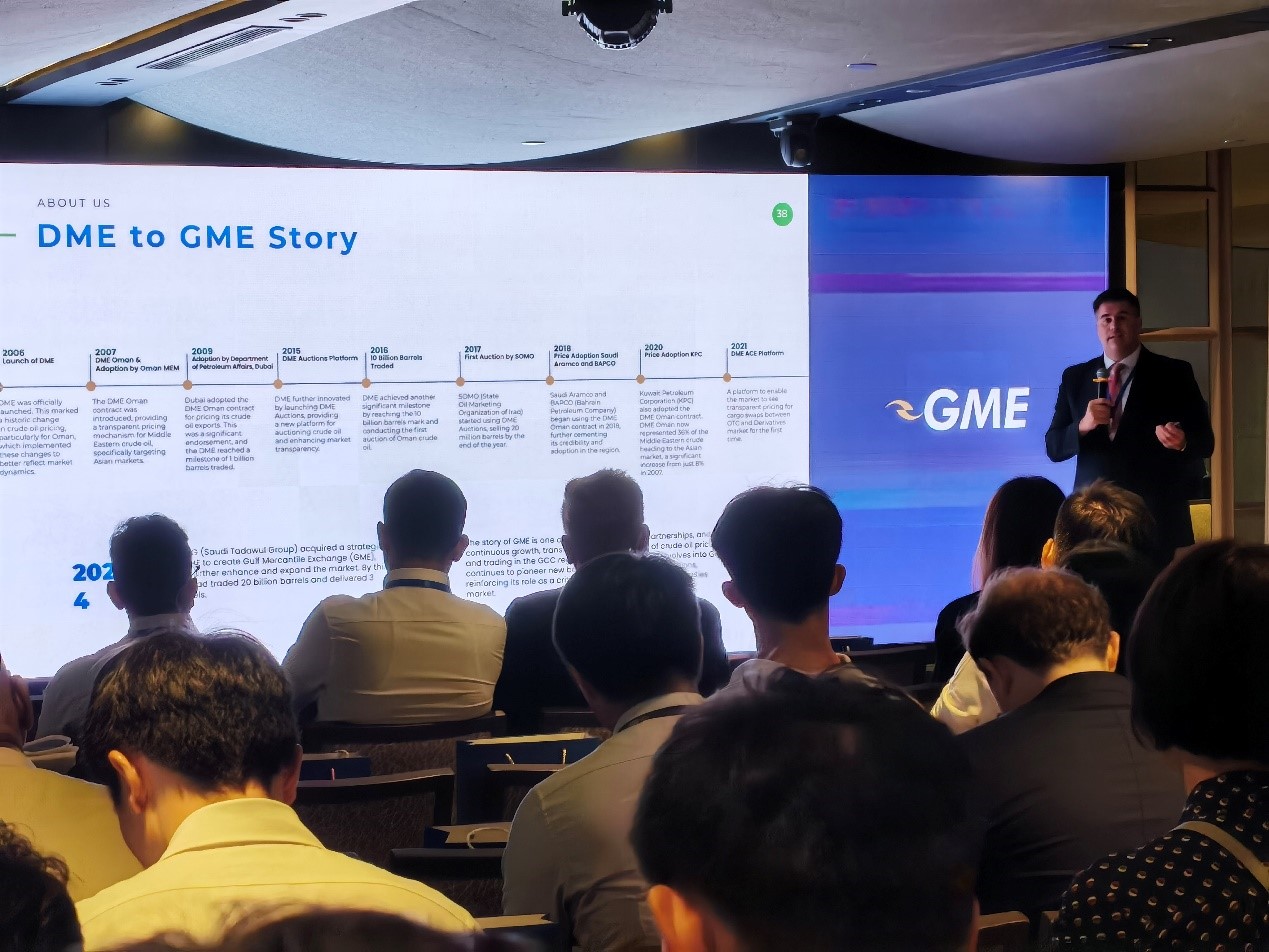
Russell Robertson shares a fascinating story about GME
Effective September 2, 2024, the Dubai Mercantile Exchange (DME) officially changed its name to the Gulf Mercantile Exchange (GME). This strategic rebranding followed the recent addition of Saudi Tadawul Group as a new strategic shareholder.
The company is now owned by CME Group (32.6%), Saudi Tadawul Group (32.6%), Oman Investment Authority (23.1%), Dubai Holding (4.1%), as well as Shell, Vitol, Goldman Sachs, Morgan Stanley, and JP Morgan Chase (collectively 7.7%), said Russell Robertson.
As DME evolves into GME, it continues to pioneer new benchmarks and trading solutions, reinforcing its role as a critical player in the global commodities market, he said.
Since its launch, GME Oman Crude Oil Futures have traded 21 billion barrels through the exchange and a total of 3 billion barrels have been delivered through the exchange delivery mechanism, he added.
The GME Oman crude currently represents 36% of the Middle Eastern crude oil heading to the Asian market, as compared to just 8% back in 2007.
Last year, 24 companies went to the physical deliveries of the crude contracts. A vast majority of the Oman crude was shipped to Asian refiners, with occasional arbitrage cargoes moving to the U.S. or Europe, he said.

